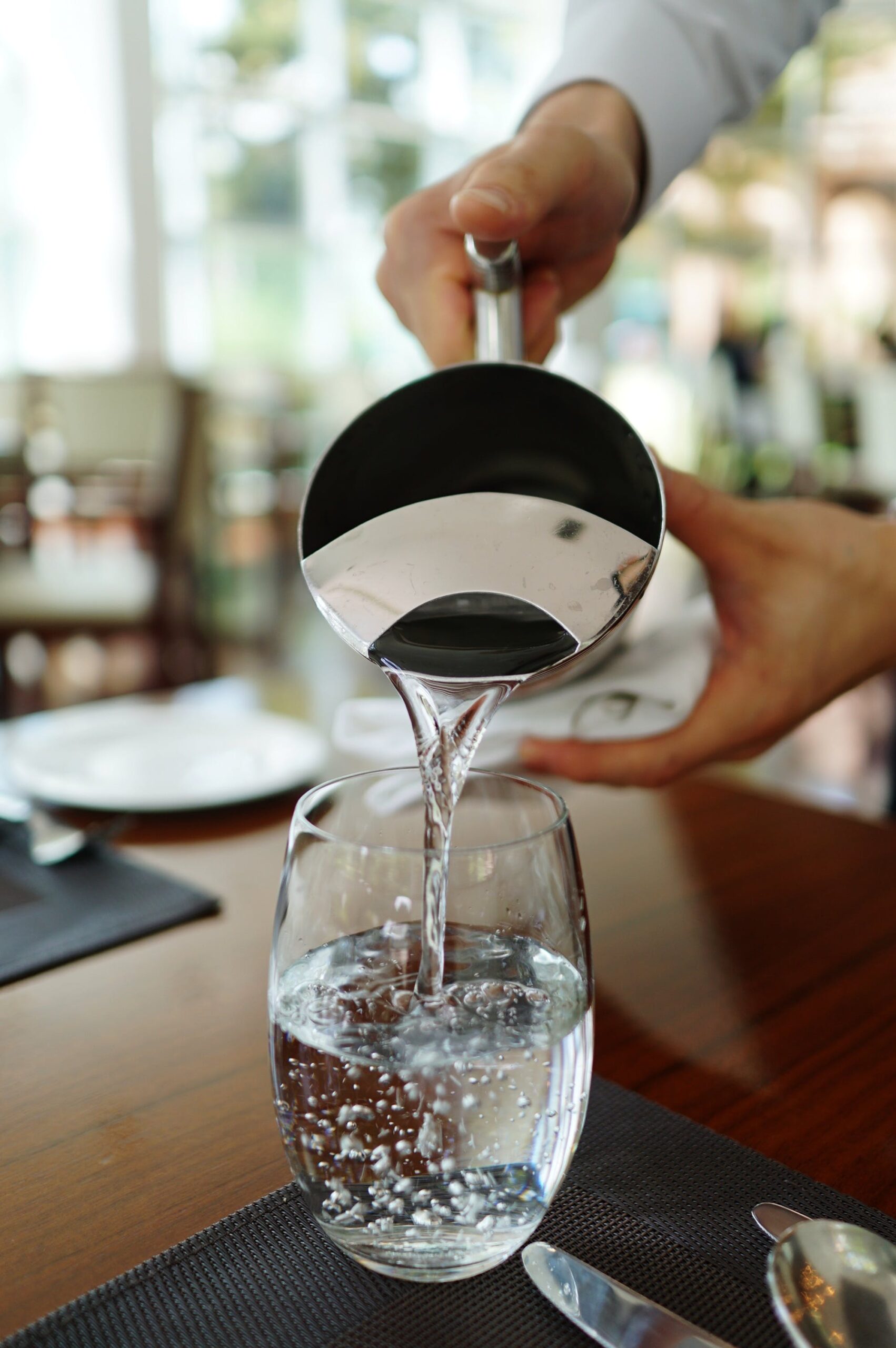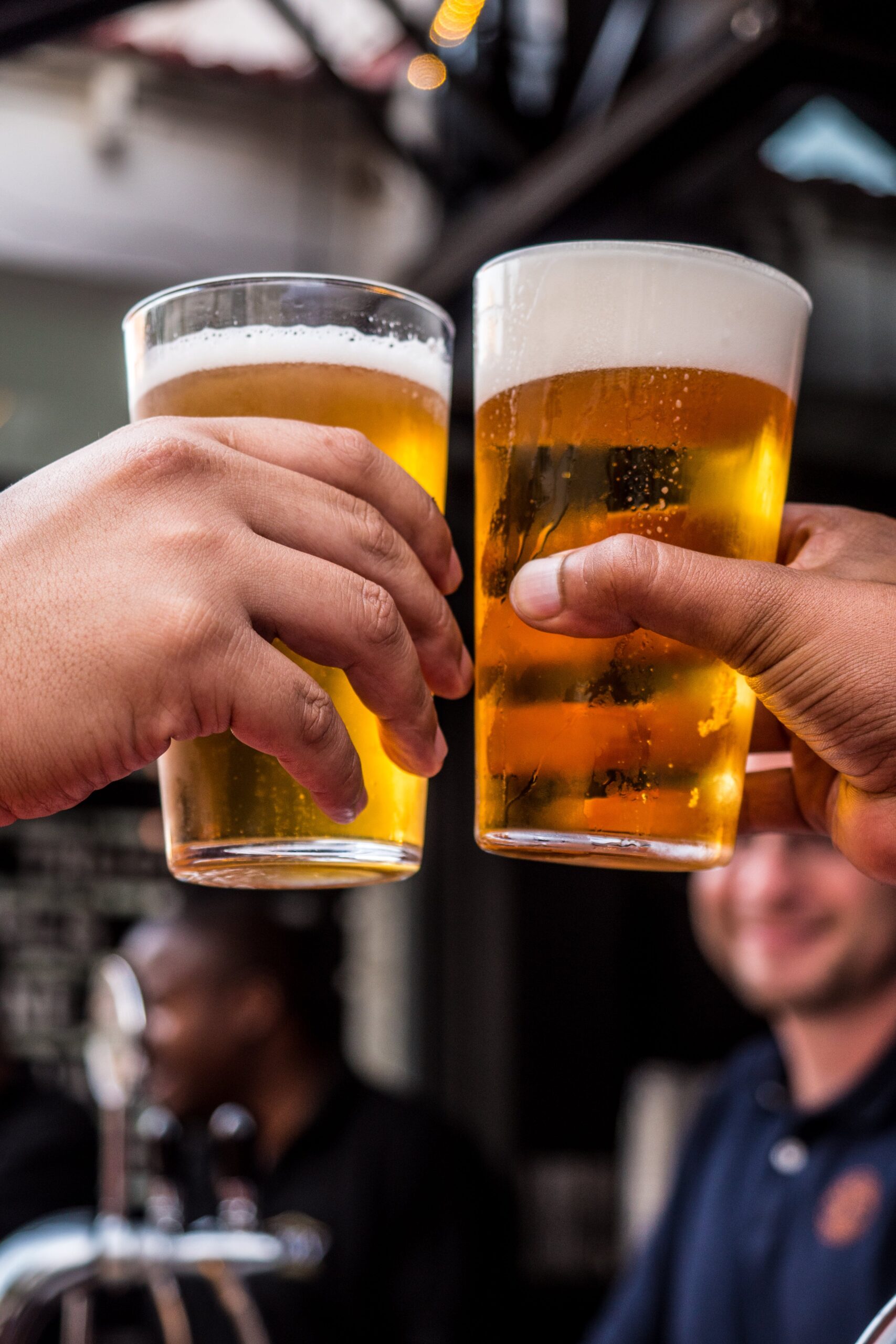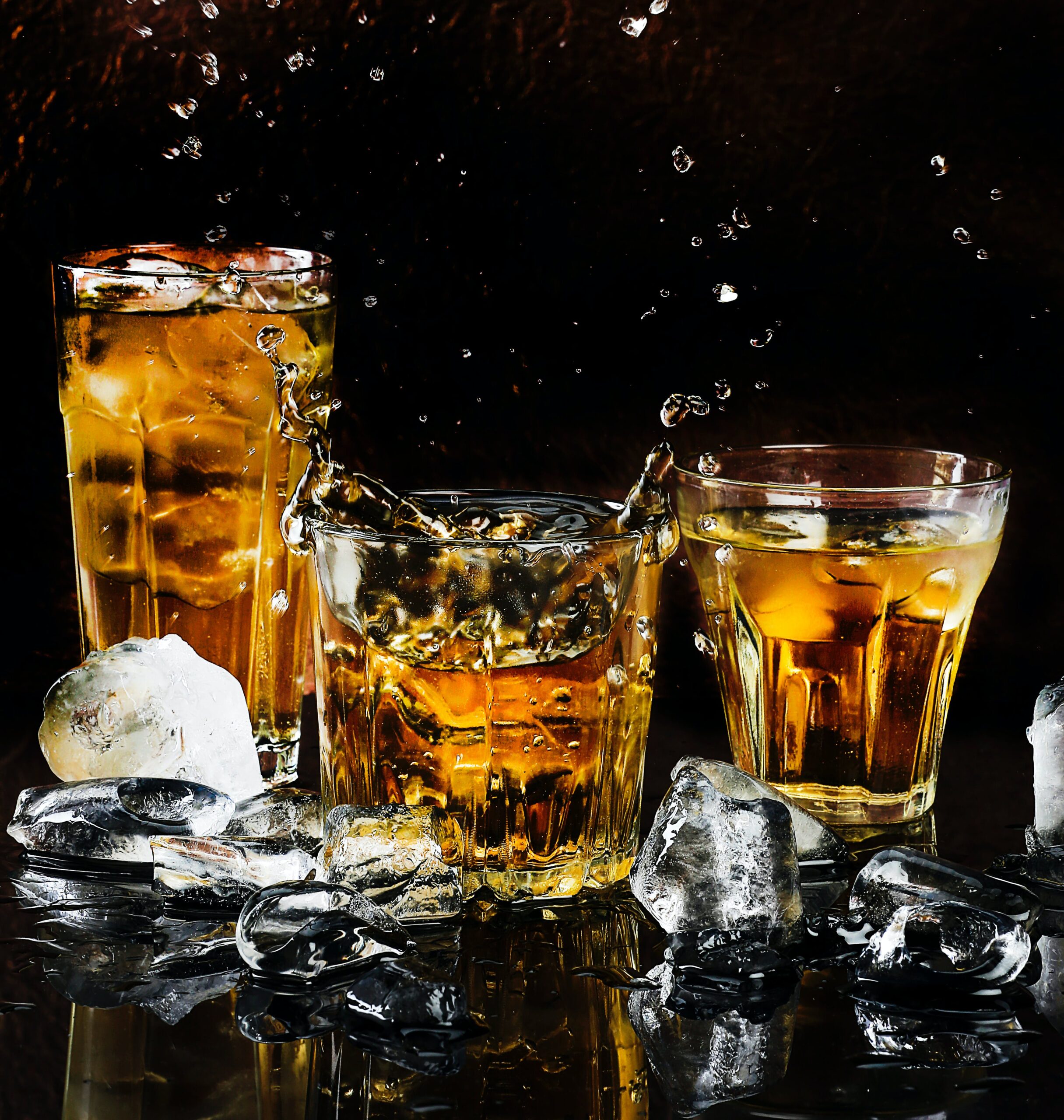What is a hangover?
A hangover is the unpleasant physical and mental effects that occur after consuming an excessive amount of alcohol. Typical symptoms include headache, fatigue, nausea, dehydration, sensitivity to light and sound, and difficulty concentrating. Hangovers can vary in severity depending on factors such as the amount and type of alcohol consumed, the individual’s tolerance, and their overall health. The duration of a hangover can also vary, with some people experiencing symptoms for only a few hours while others may feel the effects for an entire day. Understanding the causes and symptoms of a hangover is important for taking steps to prevent and alleviate its effects. In the following sections, we will explore the causes of a hangover, its symptoms, and some strategies for preventing and managing hangovers.

1. Hydrate yourself. Drink plenty of water to rehydrate your body, as alcohol dehydrates the system.
2. Eat a balanced meal. Opt for foods that are easy to digest, such as toast, crackers, or fruits.
3. Take pain relievers. Over-the-counter painkillers like ibuprofen or aspirin can help alleviate headaches and body aches.
4. Rest and sleep. Allow your body to recover by getting enough rest and sleep.
5. Engage in light physical activity. Going for a walk or doing some gentle exercises can help boost circulation and ease hangover symptoms.
6. Consume electrolytes. Sports drinks or coconut water can replenish lost electrolytes and minerals in the body.
7. Avoid caffeine. While it may be tempting to rely on coffee, caffeine can further dehydrate you and worsen your symptoms.
8. Stick to light, plain foods. Avoid greasy or spicy meals that may worsen nausea or indigestion.
9. Try natural remedies. Ginger tea or peppermint can help settle an upset stomach.
10. Learn from the experience. Moderation and pacing yourself in future alcohol consumption can prevent future hangovers.
Symptoms of a hangover
Some common symptoms of a hangover include depression, anxiety, disrupted sleep, fatigue and weakness, headache, nausea, and muscle aches. These symptoms are often experienced after a night of heavy alcohol consumption. Factors such as dehydration, disrupted sleep, and stomach irritation contribute to these symptoms.
Dehydration is a key factor in the development of hangover symptoms. Alcohol is a diuretic, leading to increased urine production and loss of fluids and electrolytes from the body. This dehydration can lead to headaches, fatigue, and muscle aches. Disrupted sleep is another contributing factor, as alcohol can interfere with the body’s natural sleep patterns, leading to poor quality and shortened sleep, which can exacerbate feelings of fatigue and weakness.
Stomach irritation from alcohol can lead to nausea and digestive discomfort, contributing to the overall discomfort of a hangover. Additionally, alcohol’s effects on neurotransmitters and hormones can contribute to feelings of depression and anxiety.
Overall, the combination of dehydration disrupted sleep, and stomach irritation all play a role in the development of common hangover symptoms. It’s important to stay hydrated, get adequate rest, and eat well to help alleviate hangover symptoms and promote recovery.
Causes of Hangovers
We have all experienced the unpleasant effects of a hangover after a night of drinking. Understanding the causes of hangovers can help us make better decisions about alcohol consumption and take steps to prevent or minimize the discomfort the next day. From dehydration to inflammation, several factors at play contribute to the notorious symptoms of a hangover. Let’s explore the common causes of hangovers and learn how to avoid them. Understanding the causes of hangovers can help us make better decisions about alcohol consumption and take steps to prevent or minimize the discomfort the next day. From dehydration to inflammation, several factors at play contribute to the notorious symptoms of a hangover. Let’s explore the common causes of hangovers and learn how to avoid them.
Alcohol Consumption

Excessive alcohol consumption can lead to several health risks, including liver disease, heart problems, and an increased risk of certain cancers. Additionally, alcohol can impair cognitive function and lead to accidents and injuries. The symptoms of a hangover can include headache, nausea, fatigue, and dizziness.
Recommended serving sizes for alcohol vary by type. For example, a standard serving of beer is 12 ounces, wine is 5 ounces, and spirits are 1.5 ounces. The myth of “Beer before liquor, never been sicker” has no scientific basis. The key to avoiding a hangover is moderation and staying hydrated.
It’s important to stick to one type of alcohol to track consumption amounts accurately. If you or someone you know is struggling with alcohol consumption, the National Drug and Alcohol Treatment Referral Routing Service can provide resources and assistance. It’s crucial to recognize the signs of a drinking problem and seek help when needed.
Absorption of Alcohol

Alcohol absorption begins once a person starts drinking and continues until all the alcohol has been metabolized. On average, it takes about 30 minutes to 2 hours for the body to metabolize a standard alcoholic drink, such as one beer or one glass of wine. The absorption rate and blood alcohol levels can be affected by the alcohol percentage, with a higher percentage of drinks leading to faster absorption and higher blood alcohol levels.
Alcohol is primarily absorbed through the stomach and small intestine. The rate of absorption can be influenced by several factors, including the presence of food in the stomach, the individual’s weight and metabolism, and the alcohol content of the drink. Consuming more than one drink per hour can lead to a faster rise in blood alcohol levels, as the body may not be able to metabolize the alcohol as quickly as it is being consumed.
Overall, the process of alcohol absorption and metabolism is influenced by factors such as the type and amount of alcohol consumed, individual differences, and external factors such as food intake. It’s important for individuals to be aware of how their body processes alcohol and to drink responsibly to avoid negative effects.
Blood Alcohol Levels
Blood alcohol levels have a significant impact on hangovers and the risk of alcohol-related health issues, including cancer. The higher the blood alcohol levels, the more severe the hangover and the greater the risk for long-term health problems. High blood alcohol levels can lead to more intense hangover symptoms such as headache, nausea, fatigue, and dehydration. Moreover, prolonged exposure to high blood alcohol levels can increase the risk of liver damage, cardiovascular issues, and certain types of cancer, particularly in heavy drinkers.
Different blood alcohol levels are associated with various degrees of hangover severity. Mild hangovers are typically linked to lower blood alcohol levels, moderate hangovers to slightly higher levels, and severe hangovers to very high levels. It is essential to understand the relationship between blood alcohol levels, hangover severity, and long-term health risks to make informed decisions about alcohol consumption. Ultimately, minimizing blood alcohol levels can help reduce the severity of hangovers and lower the risk of developing alcohol-related health issues.
Electrolyte Imbalance
Electrolyte imbalance occurs when the body has too much or too little of certain minerals, such as sodium, potassium, calcium, or magnesium. Symptoms of electrolyte imbalance may include muscle cramps, weakness, irregular heartbeat, confusion, and twitching. These symptoms can occur due to various causes, such as excessive sweating, dehydration, kidney problems, medications, or certain health conditions.
To address electrolyte imbalance, it is important to consume electrolyte-rich foods, such as bananas, oranges, spinach, and yogurt. Staying hydrated is also crucial, as it helps maintain the balance of electrolytes in the body. In cases of severe electrolyte imbalance, medical attention may be necessary. If symptoms persist or worsen, it is important to seek prompt medical treatment.
In conclusion, electrolyte imbalance can lead to various symptoms, including muscle cramps, weakness, and irregular heartbeat. It is important to address the imbalance by consuming electrolyte-rich foods, staying hydrated, and seeking medical attention if necessary.
Treating Hangovers
After a night of overindulging in alcohol, many people experience the unpleasant side effects of a hangover the next day. From headaches and nausea to fatigue and dizziness, hangovers can put a damper on anyone’s day. However, several remedies and treatments can help alleviate the symptoms and make the recovery process more bearable. From hydration and rest to over-the-counter medications and natural remedies, there are various ways to effectively treat and recover from a hangover. In this article, we will explore some of the best methods for treating hangovers and getting back on your feet after a night of excess. Whether it’s the morning after a celebration or a night out with friends, these tips and techniques can help you bounce back and feel better in no time. So, if you’re looking for ways to combat the effects of a hangover, keep reading for some helpful advice and strategies.
Hydrate with Plain Water or Sports Drinks
Hydrating with plain water or sports drinks can provide numerous benefits in alleviating hangover symptoms. Plain water helps to flush out toxins and prevent dehydration, which is a common cause of hangover symptoms such as headache and fatigue. By drinking water, the body can effectively rid itself of the alcohol and its byproducts, helping to reduce the severity of a hangover.
On the other hand, sports drinks can also be beneficial for restoring essential salts and electrolytes lost from excessive alcohol consumption. The electrolytes in sports drinks help to rehydrate the body and maintain a proper balance of fluids, which can help to alleviate symptoms such as nausea and dizziness.
It is important to maintain hydration levels throughout the day after drinking to aid in the recovery process. By continuing to drink water or sports drinks, the body can maintain proper hydration, which can help to lessen the duration and severity of a hangover.
In conclusion, whether it’s through plain water or sports drinks, staying hydrated after drinking alcohol can help alleviate hangover symptoms and promote overall recovery. Both options can be effective in restoring the body’s hydration levels and minimizing the effects of dehydration on the body.
Eat Bland Foods to Settle an Upset Stomach
When you’re feeling unwell with an upset stomach, it’s essential to stick to bland foods that are high in carbohydrates to help settle your stomach. Bananas, rice, applesauce, toast, and crackers are all excellent options to consider. Bananas are gentle on the stomach and also provide essential nutrients like potassium. Rice is easily digestible and can help absorb excess stomach acid. Applesauce is another easily digestible option that can provide a good source of carbohydrates. Toast and crackers are bland and can help absorb stomach acids as well.
In addition to these bland options, incorporating fruits like watermelon, strawberries, and cantaloupe can also be beneficial. These fruits are high in water content, which can help relieve dehydration, and their natural sugars can help restore your blood sugar levels.
Overall, opting for bland, high-carbohydrate foods like bananas, rice, applesauce, toast, and crackers can help settle an upset stomach, while fruits like watermelon, strawberries, and cantaloupe can provide hydration and help restore your energy levels. Remember to eat small portions and gradually reintroduce other foods as your stomach begins to feel better.
Pain Relievers for Headache and Muscle Aches
If you are experiencing headaches or muscle aches, pain relievers such as NSAIDs (nonsteroidal anti-inflammatory drugs) like ibuprofen and naproxen can provide relief. These medications work by reducing inflammation and blocking the production of chemicals in the body that cause pain.
In the case of a hangover, NSAIDs can also help alleviate symptoms such as headache and muscle aches. However, it is important to avoid using acetaminophen (Tylenol) when experiencing a hangover, as it can increase the risk of liver damage when combined with alcohol.
Common types of NSAIDs that may be suitable for addressing headaches and muscle aches include ibuprofen (Advil, Motrin) and naproxen (Aleve). It is essential to consult a healthcare provider before using these medications, especially if you have any underlying health conditions or are taking other medications.
In summary, NSAIDs such as ibuprofen and naproxen can provide potential relief for headaches, muscle aches, and hangover symptoms. However, it is important to be cautious about using acetaminophen and always consult a healthcare provider before using any pain relievers, especially when alcohol is involved.
Sleep to Recharge the Body and Mind
Sleep is crucial for our body to recover from alcohol consumption and to improve sleep quality. It is recommended to get at least 7-9 hours of sleep each night to allow our bodies to fully recover. Excessive alcohol intake can disrupt our sleep patterns, leading to a poor night’s sleep and increasing the risk of experiencing a hangover the next day. Prioritizing your sleep schedule is crucial to ensure that your body has enough time to rest and recharge.
By getting enough sleep, we allow our bodies to repair and rejuvenate themselves, promoting overall well-being and mental clarity. To prioritize sleep, it’s important to establish a bedtime routine and create a sleep-conducive environment. This includes keeping the bedroom dark, quiet, and cool, and avoiding screens and stimulating activities before bedtime. By making sleep a priority and limiting alcohol consumption, we can help promote better sleep quality and overall health.
Avoid Caffeine and Sugary Drinks
Caffeine and sugary drinks can worsen the negative effects of a hangover. Both caffeine and sugar can contribute to dehydration, which is already a common issue during a hangover. Caffeine is a diuretic, meaning it increases urine production and can lead to further dehydration. Sugary drinks can cause a spike in blood sugar levels followed by a crash, leaving you feeling even more fatigued and lethargic. It is best to avoid these drinks when recovering from alcohol consumption.
Instead, opt for hydrating alternatives such as water, coconut water, or sports drinks that replenish electrolytes. These drinks can help rehydrate the body and aid in the recovery process. Additionally, consider incorporating antioxidant-rich drinks like green tea, herbal tea, or fruit juices that can help alleviate hangover symptoms without exacerbating dehydration. Antioxidants can assist in the body’s natural detoxification process and relieve inflammation caused by alcohol consumption.
Ultimately, avoiding caffeine and sugary drinks and opting for hydrating and antioxidant-rich alternatives is crucial for a quicker recovery from a hangover and overall well-being.
Prevention of Hangovers
Hangovers can be a dreaded consequence of overindulging in alcohol, often leaving us with headaches, nausea, and fatigue. While there is no guaranteed way to completely avoid a hangover, there are several strategies that can help minimize the symptoms. From staying hydrated to choosing the right type of alcohol and avoiding certain mixers, there are a variety of prevention methods to consider. In addition, pacing yourself, getting enough rest, and eating a substantial meal before drinking can also play a role in reducing the severity of a hangover. By incorporating these prevention techniques into your drinking habits, you may be able to enjoy a night out without the unpleasant aftermath.
Monitor Your Alcohol Consumption and Blood Sugar Levels
To monitor alcohol consumption and blood sugar levels, it is important to keep track of how much alcohol is being consumed. Avoid excessive drinking to prevent fatigue and low mood, as alcohol can disrupt energy levels. Be mindful of the impact alcohol has on blood sugar levels, as it can cause fluctuations that can lead to hangovers and energy crashes.
To prevent hangovers and maintain energy levels, it is essential to monitor alcohol intake and drink responsibly. Keep track of the number of standard drinks consumed and opt for lower-alcohol alternatives when possible.
In addition, be aware of the impact alcohol has on blood sugar levels. Alcohol can affect the body’s ability to regulate blood sugar, leading to fluctuations that can contribute to hangovers and feelings of fatigue.
By monitoring alcohol consumption and blood sugar levels, individuals can avoid hangovers and maintain steady energy levels, leading to an overall healthier lifestyle.
Recommend0 recommendationsPublished in Opinion
Responses